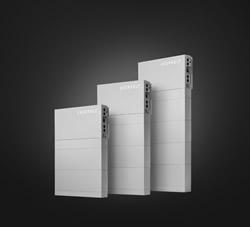New Hybrid Vehicles Debut at a Critical Time for the Technology
At the North American International Auto Show in Detroit this week, Toyota introduced a hybrid version of its Camry and GM introduced two hybrid production SUVs: the Saturn Vue Green Line Hybrid and the Chevy Tahoe.
Oyster Bay, NY - January 12, 2006 - At the North American International Auto Show in Detroit this week, Toyota introduced a hybrid version of its Camry and GM introduced two hybrid production SUVs: the Saturn Vue Green Line Hybrid and the Chevy Tahoe. All three share important similarities, but their success or failure may mean very different things to their manufacturers.
"This is an important generation for the future of hybrid vehicles," says Dan Benjamin, principal analyst for ABI Research's transportation practice. "With these models � as well as the Ford Escape and the Honda Accord � we're starting to see hybrid versions of mainstream vehicles. The auto makers are giving customers a direct choice: to opt for hybrid technology on a given model, or not. Will they pay the premium for the hybrid technology when everything else about the vehicle is the same?"
How big is that premium? Depending on the model, says Benjamin, choosing the hybrid will add between US $2000 and $4000 to the cost. But the lower end of that range, applying to the Saturn Vue Green Line Hybrid, buys you a powertrain that is not hybrid in the "traditional" sense of the word, but instead uses a belt-alternator-starter system, in which the electric motor contributes virtually nothing to propelling the vehicle, only allowing the engine to shut down when the car is stationary, and as a generator for regenerative braking.
What will the consequences for Toyota and GM be, if consumers love or loathe their new hybrids? "Commercial failure of the hybrid Camry would probably not have too great an effect on Toyota," Benjamin suggests. "After the success of the Prius, Toyota is heavily committed to hybrid systems, and the company expects to find ready markets for them in the more fuel-conscious regions of Europe and Japan."
For GM, the stakes are far greater. This is a big test: not just their first mass market hybrid vehicles, but ones based on high-volume, important models in their product lineup. It is also a big debut for the hybrid system that they've been developing with DaimlerChrysler. The hybrid fortunes of both companies depend on the success of that system. It will be very important to see how well it does.
Two ABI Research studies, "Hybrid Electric Vehicles" and "Commercial Hybrid Electric Vehicles" are available as part of the company's "Automotive Systems Research Service", which covers the automotive systems market from the perspectives of the drivetrain, safety systems, automotive networking, software and semiconductors.
Founded in 1990 and headquartered in New York, ABI Research maintains global operations supporting annual research programs, intelligence services and market reports in automotive, wireless, semiconductors, broadband, and energy. For information visit www.abiresearch.com, or call +1.516.624.2500.
Featured Product

